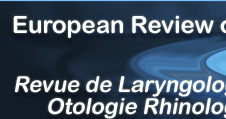 Issue N# 5 - 2004
Issue N# 5 - 2004

SPEECH THERAPY
Stingy speakers.
Authors : M. Paperman (Paris)
Ref. : Rev Laryngol Otol Rhinol. 2004;125,5:328-330.
Article published in french 
Downloadable PDF document french 
Summary :
While the greater part of the patients that we rehabilitate like to speak again in a carried and loud voice; some of them more or less clearly show their reluctance to «amplify» their voice and prefer keeping on with speaking in a conversational tone, even though this appears to be inappropriate in a professional context. Listening attentively to what they can say about it enables us to understand that their reluctance stems from the fact that they find their voice a particularly valuable possession. Hence their anxiety to save their voice, as if using it may also cause its exhaustion. Of course, with some appeal to their common sense and some persuasion, it is possible to convince the patients that carrying one’s voice efficiently saves it as far as it makes use of the resonators. An argument that henceforth makes them accept to carry their voice. Nothing could be more justified than the satisfaction the rehabilitator can feel. Yet, is this satisfaction not felt to the detriment of the psychological organisation of the patient who also has to be regarded as a subject? A clinic example will allow us to raise the issue of a possible therapeutic failure and as a result to make an issue of the possibility for speech therapy to exist without any theoretical model of psychological functioning.
Price : 5.50 €

|



